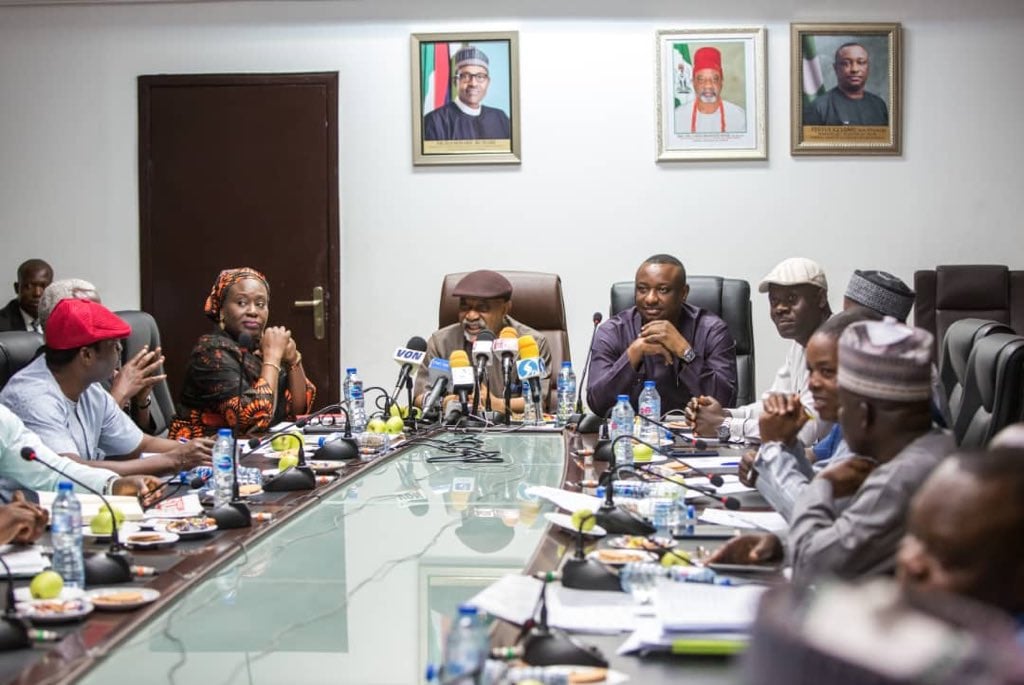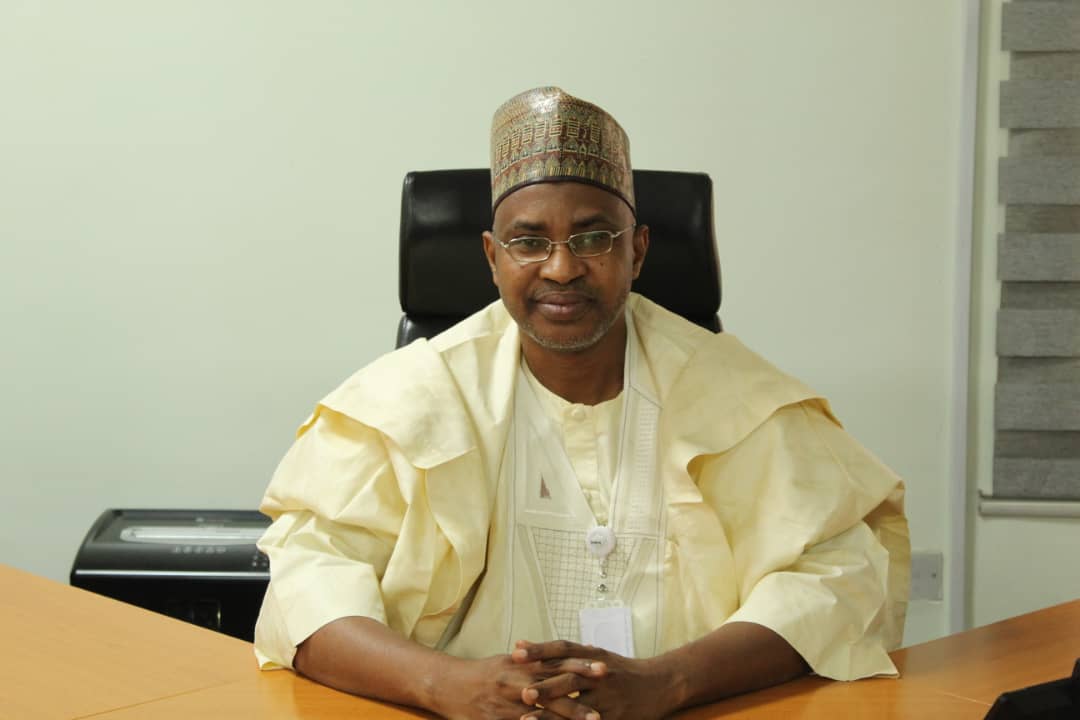BY VICTOR AKHIDENOR
The Federal Ministry of Labour and Employment was established as a department in the Colonial Governor’s Office in 1932. It became a full-fledged ministry in 1952. Now, it has its presence in every part of Nigeria with a headquarter in Abuja, the nation’s federal capital territory. In all, it has a network of 36 state labour offices, the FCT labour office, and 23 district labour offices with about 4,000 staff members.
The functions and responsibilities of the ministry are captured in Section 169, item 34, Second Schedule under the Exclusive Legislative List of the 1999 Constitution of the Federal Republic of Nigeria (as amended).
The ministry is responsible for labour administration in Nigeria and it includes the preparation, formulation, coordination, monitoring, review, implementation and enforcement of all government policies and regulations which relate to employment generation, labour protection, productivity improvement, industrial peace and harmony, occupational safety and health in workplaces.
The mandate of the ministry is to achieve full labour force participation in the economy through job creation/employment generation and skills development, supported by healthy labour administration that promotes industrial harmony and protection in the workplace for optimal productivity, with social protection and safety nets for all for national socio-economic wellbeing.
Advertisement
This generic mandate of the ministry is usually reviewed and updated to address the priority agenda of the administration in power e.g. the eight Ministerial Mandates signed by the Ministers and the Nine Priority Areas of the present administration. The vision of the ministry is to create enabling environment for sustained skills development, employment creation, optimal productivity, industrial peace and harmony, safe and decent work principles, universal social security coverage, and safety nets for Nigerians.
The mission of the ministry is to mobilise and deploy resources for a well-coordinated labour administration system and labour force participation in national development, through the generation, promotion and sustenance of decent work for socio-economic growth and development.
The ministry is run under a functional structure. The minister of labour and employment, the minister for state of labour and employment, and a permanent secretary constitute the management team. There are seven professional departments in the ministry with each headed by a director reports to the management team. The departments are Inspectorate Department, Employment and Wages (E&W), Trade Union Services and Industrial Relations (TUSIR), Productivity Measurement and Labour Standards (PM&LS), Occupational Safety and Health (OSH), Social Security and Cooperative Development (SS&CD), Skills Development and Certification (SDC). There are 11 units headed by directors or assistant directors who as well report to the management team. The unites are Human Resource Management (HRM), Finance and Accounts (F&A), General Services (GS), Policy Analysis, Research and Statistics (PARS), Procurement, Special Duties and Projects (SP&P), Reform Coordination and Service, Improvement (RC&SI), Internal Audit, Press and Public Relations Unit, Federal Audit Unit, and Legal Unit.
Advertisement
There are other agencies outside the ministry but linked to its structure. They are National Directorate of Employment (NDE) – promotes full labour participation through short term skills development for job creation and employability; National Productivity Center (NPC) – focuses on the attainment of optimal national productivity; Michael Imodu National Institute for Labour Studies (MINILS) – professionalisation of labour administration through targeted capacity building for key stakeholders; Industrial Arbitration Panel (IAP) – facilitates industrial harmony and peace through arbitration and resolution of trade disputes, and the Nigeria Social Insurance Trust Fund (NSITF) – pursues social inclusion towards universal social security coverage.
I will restrict this problem to the department I work which is Inspectorate. The Inspectorate department is one of the oldest departments in the Ministry and the bedrock of labour administration in the country. This Department operates through a network of Zonal, State and District Labour Offices in the 36 States and F. C. T, Abuja. The department is made up of three Divisions and four Sections at the Headquarters:
Divisions
Conditions of Employment
Zonal and State Administration
Labour Issues and Advisory Services
Sections
Inspection, Collation and Analysis Section
Child Labour, Forced Labour and Human Trafficking Section
Workers’ Education and Training, Labour Health Areas/Informal Economy Section.
Labour Complaints and Gender Mainstreaming Section
The vision of the department is to provide effective and efficient labour inspection services which promote improved work environment, ensures the protection of the rights of workers and their employers and thus, contributing to the socio-economic development of the country. The department has the mission to use labour inspections delivery system to ensure the enforcement of Labour Standards compliance with the national labour legislation in a way that guarantees peaceful and harmonious industrial relations atmosphere at all levels of the society.
Advertisement
Ensures adequate compliance with the labour laws through regular and sustained inspection of industrial, commercial and agricultural establishments
Monitors the terms and conditions of employment in workplaces
Collates, analyses and interprets the inspection reports
from the field offices for national reporting
Coordinates, implements and monitors child labour, forced labour and child/human trafficking across the country
Educates and builds the capacity of professional officers of the Ministry, employees and employers on labour administration and emerging trends in the world of work
Ensures fair labour practices through intervention and handling of a labour complaint
Ensures Gender equality through Gender mainstreaming in the world of work
Ascertain that the statutory provisions on the terms and conditions of work are satisfied in order to ensure the welfare and protection of workers
Monitors and surveys Labour Health Areas to ensure the protection of workers and compliance with extant labour laws, policies and regulations.
Provides relevant professional advisory services to the management, workers and State Governments.
The performance problem: Inability to sanction non-complying organisations
The key function of the department as stated in the first point has become a major performance problem. The department only ensures, on paper, adequate compliance with the labour laws through regular and sustained inspection of industrial, commercial, and agricultural establishments.
The ministry, through the Inspectorate department, has the statutory responsibility of providing effective and efficient labour inspection services. The goal is to promote improved work environment, ensure the protection of the rights of workers and their employers and thus, contribute to the growth of sustainable enterprises and inclusive economic growth in Nigeria.
The improvement in working conditions, occupational health and safety can only be achieved if the ministry has the power to prosecute companies who do not comply with these guidelines. Since most of the organisations inspected have realised that the ministry is a mere toothless bulldog in carrying out this key function, they flagrantly disobey laid down directives. Some even go as far as locking their gates when labour inspectors visit them while others report staff members to their superiors in the ministry. And the so-called superiors instead of standing by their subordinates, chastise them for doing nothing but their duties. An inspector in Osun state was suspended for closing a Chinese company known for poor working conditions of its employees.
The impact on business
The Federal Ministry of Labour has the mission of monitoring compliance with labour standards. On paper, it is a broad function. In reality, it is a narrow and sometimes non-existent function because the ministry cannot penalise organisations that flout this rule.
The conclusion by the International Labour Conference in a survey, before its 2006 seminar, serves as a pointer.
“The labour inspection system has the potential to play an even greater role than it has hitherto, in ensuring the protection of both men and women workers in all sectors and at all levels in ensuring compliance at the national level with national labour laws and ultimately in assisting and strengthening the international supervisory system.”
In Nigeria, labour inspection is neglected by the government and unscrupulous employers, who are aware of this, take advantage of the situation. So, the key role of protecting workers’ right to decent work environments is greatly impaired. Ideally, the ministry has the responsibility of alerting the federal government to the way salary earners are treated and penalise employers where appropriate according to the severity of the offence committed. But the inability to clamp down on erring organisations who do not comply has impacted negatively on the job. The economy suffers too.
Identifying non-declared workers, verifying the number of hours worked, matching salaries and taxes paid, finding foreign workers who do not have work permits, finding under-aged children in the workforce, encountering companies involved in illegal work different from what their signboards (if any) say, etc. are some of the challenges inspectors face which has an adverse effect on the economy.
Advertisement
Another compliance checklist is Protection of incomes, e.g. minimum wages; Holidays and rest periods; Work injury compensation, including insurance issues, accident/illness records; Welfare facilities including sanitary provisions; Personal protective equipment and clothing; Emergency preparedness and first-aid facilities; Wages and salaries records; General housekeeping; and Compliance with collective bargaining agreements.
Labour inspection reports, which are meant to capture all this, are only written to fulfil the job requirement as nothing is done with them afterwards. The climate of violence and insecurity of labour inspection, particularly in Edo state where I work, are on the increase. Cases of employers unleashing thugs on inspectors abound. Many inspectors have suffered from severe injuries while doing their jobs.
Advertisement
In Nigeria, a lot of workers die from occupational injuries and diseases every year. Others endure poor working conditions that are not in line with core labour standards. And it is rather sad that the ministry’s Inspectorate department cannot bring perpetrators to book.
Advertisement






